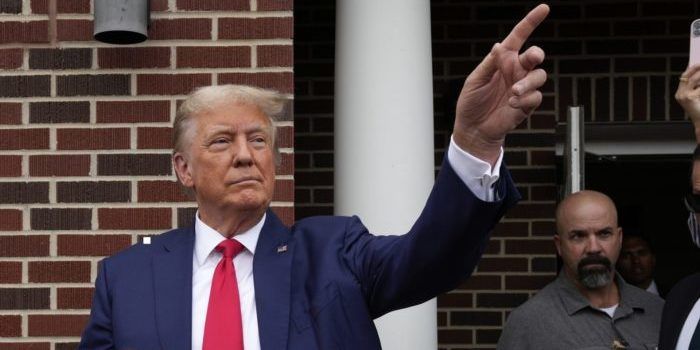(Ken Silva, Headline USA) Special Counsel Jack Smith filed a motion Wednesday to exclude a wide swath of evidence from Donald Trump about the Jan. 6, 2021, Capitol Hill protest-turned-riot—arguing that Trump would use that evidence to “turn the courtroom into a forum in which he propagates irrelevant disinformation.”
Specifically, Smith seeks to suppress records about possible undercover provocateurs at the Capitol on Jan. 6, as well as evidence of foreign election-interference efforts ahead of November 2020.
When it comes to possible undercover agents, Smith argued that they had no effect on Trump’s actions.
“There is certainly no evidence that the defendant here had contact with or knew of any undercover actor anywhere on January 6—and certainly not at the Capitol, where the defendant promised his supporters he would join them,” Smith said.
Smith then raised concerns that admitting evidence of undercover agents could confuse the jury.
“Allowing the defendant to introduce evidence about undercover actors would inevitably lead to confusing minitrials on collateral issues, such as the identities and intentions of the alleged undercover actors,” he said.
“For example, it may require the Government to introduce evidence to show that people whom the defendant alleges were undercover actors actually were his vehement supporters.”
As for election interference, Smith said that “such evidence should be excluded as an irrelevant and confusing sideshow.”
“Shifting attention to purported false claims made by unspecified foreign actors poses the acute risk of jury confusion and for that reason, too, should be excluded,” he said.
Reacting to Smith’s motion, conservative journalists such as Julie Kelly noted the irony of Smith attempting to suppress Jan. 6 evidence in a Jan. 6 case.
NEW: Jack Smith, in likely vain attempt to keep March 4 trial date, filed another pretrial related to what the jury should be allowed to consider. (All pretrial deadlines now on hold)
Smith wants to preclude the jury from hearing evidence about Jan 6 in his Jan 6 case: pic.twitter.com/m8hgn6eGoJ
— Julie Kelly 🇺🇸 (@julie_kelly2) December 27, 2023
However, Smith has successfully suppressed evidence about undercover agents in other Jan. 6 cases.
For example, Jan. 6 defendant Ryan Zink unsuccessfully motioned in June for the DOJ to disclose all undercover law enforcement actors in the Capitol crowd.
Zink had argued that agent provocateurs may have fomented violence on Jan. 6. In denying Zink’s motion, Judge James Boasberg acknowledged that it would be important if Zink interacted with undercover informants in the J6 crowd. However, Zink didn’t provide any compelling evidence of this, the judge said.
Contrary to strategies used by Zink and other J6 defendants, Trump’s attorneys have explicitly stated that the former President isn’t looking to argue that Jan. 6 was an entrapment operation.
“President Trump is not seeking to establish that he was induced to engage in the charged conduct,” Trump’s lawyers said in a motion earlier this year.
“Rather, in this case, information regarding individuals who were present in an official capacity is favorable to President Trump because it suggests that there were adequate controls in place and that the violence at issue resulted from a failure of those controls and/or failed sting operations rather than any directions from President Trump.”
Ken Silva is a staff writer at Headline USA. Follow him at twitter.com/jd_cashless.

